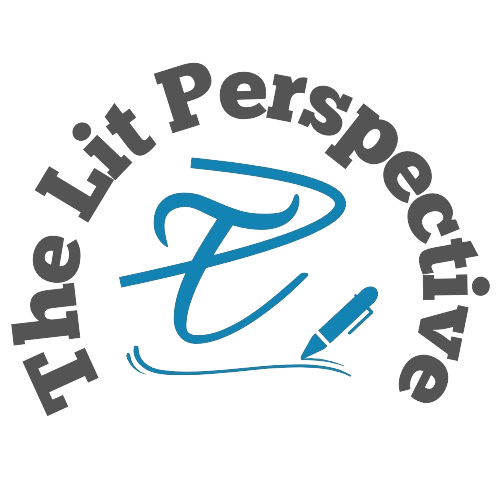TheLitPerspective is your one-stop shop for everything that ignites the spark of curiosity within you.
Are You an Eggshell Parent? How to Break the Toxic Cycle

Photo by Monstera Production
Protecting one’s child from getting hurt has always been a given as parents. But what happens when it becomes too much?
Eggshell parenting is another category of overprotective parenting that pertains to excessive protection, control, and anxiety. Yes, parents may rightfully worry about their child’s safety; they can get toxic. Moreover, their kid will miss out on the chances of having fun and being normal like other kids, all because of their irrational fears.
What Is Eggshell Parenting?
As explained earlier, eggshell parenting is a style similar to helicopter parenting. It describes extreme sensitivity to the child’s emotional and psychological needs. While every parent in the world should be like that, eggshell parenting is harmful because it is a danger. In this way, parents might shield their children from potential stress, disappointment, or discomfort.
While we can’t dictate what works for every child, imperfect parenting doesn’t have to mean absolute control. Especially when it involves parenting a disabled child. There are practical tools to parent your child with disabilities without having to treat them like a puppet. After all, they’re still human beings with their own thoughts and emotions. Having autonomy over their choices, no matter how good or bad, makes them feel like normal people.
Furthermore, taking that away from them is toxic and will not do any good in the long run. A parent’s chronic inconsistent behavior may cause a child to be hypervigilant for no reason. In return, they create an insecure environment for the sake of self-preservation.
Signs of Eggshell Parenting & Its Effects On Children
- Constantly hovering over the child and monitoring their every move
- Stepping in to solve problems the child could handle themselves
- Restricting the child’s independence and autonomy
- Placing unrealistic expectations and pressure on the child to excel
- Shielding the child from any potential discomfort, challenges, or failure
- Doing tasks for the child that they are capable of doing themselves
- Micromanaging the child’s schedule and activities
Parents must balance providing support while allowing them to be their own person. After all, we need failure to teach us valuable lessons to help us stay grounded. But if eggshell parenting gets in the way, it can set a dangerous example to the child, which would take a lifetime to unlearn. Allowing children to experience the real world and learn from their mistakes will strengthen them. Furthermore, they will have a positive feeling of agency over their own life.
What Happens to The Child with This Type of Parenting?
The long-term effect of eggshell parenting on children can make them incapable of processing their emotions. Furthermore, their social development is sabotaged by the excessive involvement of the parents. Here’s why this type of parenting is really harmful:
Emotional Fragility
- Children may struggle to manage their emotions effectively, often feeling overwhelmed by stress, anxiety, or disappointment.
- They might have low frustration tolerance, reacting strongly to minor setbacks or challenges.
Unhealthy Dependency and Lack of Autonomy
- Over-reliance on parents for decision-making and problem-solving can hinder the development of independence.
- These children may struggle to make decisions, solve problems, or take responsibility for their actions.
Low Self-Esteem and Lack of Confidence
- Being shielded from challenges and failures can lead to a lack of confidence in their abilities.
- They may doubt their competence and fear taking risks or trying new things.
Poor Coping Skills
- Children may develop effective coping mechanisms with the opportunity to face and overcome challenges.
- They can become easily overwhelmed by stress and less capable of handling life’s adversities.
Entitlement and Unrealistic Expectations
- Constantly getting their way and being shielded from disappointment can lead to a sense of entitlement.
- They may have unrealistic expectations about life, expecting it to always be easy or cater to their needs.
Lack of Readiness for the Real World
- Shielded from real-world challenges, they may find it difficult to adapt to the demands and pressures of adult life.
- Practical financial and time management, as well as problem-solving skills, must be developed.
How Does It Affect Family Dynamics?
The tension and conflict created by eggshell parents’ constant supervision and restrictions can lead to disagreements. As children rebel against the lack of autonomy, the relationship between children and parents will be ruined. This can discourage open and honest communication within the family, as children may hesitate to express their thoughts, feelings, and needs, fearing parental disapproval or intervention.
Eggshell parenting can also create unfair treatment of siblings, leading to jealousy, competition, and conflicts as they yearn for their parent’s approval and affection. As eggshell-parented children transition into adulthood, they may struggle to establish their own boundaries and independence within the family, leading to ongoing conflicts and difficulties.
Additionally, the constant effort required to maintain an eggshell parenting style can lead to parental burnout and increased stress levels, further straining family dynamics as parents become less emotionally available or more irritable.
Conclusion
The resentment and enmeshment that can develop in eggshell-parented families further strain relationships, while the imbalance in sibling treatment can breed jealousy and competition. As these children transition to adulthood, they may face difficulties establishing their independence and boundaries within the family, leading to ongoing conflicts.

Hello! Do you like art? Cats? Manga and anime? Perhaps a chill rainy afternoon? You are very welcome to my world!







